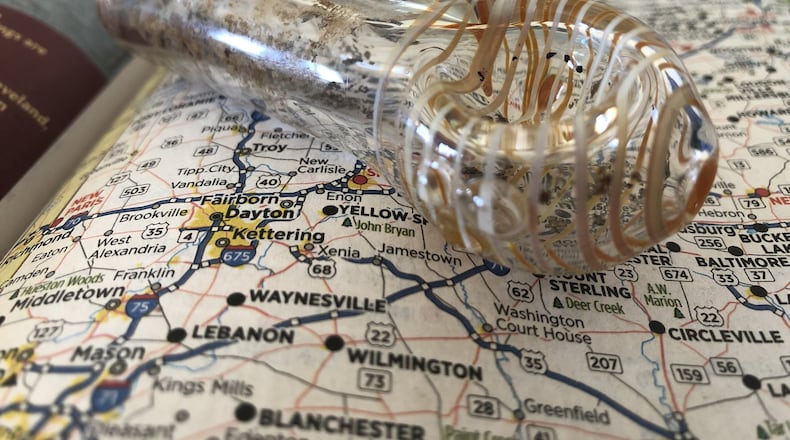A Dayton Daily News analysis of court data showed a 70 percent decrease in minor marijuana possession charges filed in Dayton Municipal Court from Feb. 7 and March 7 as compared to the same period in 2018.
MORE: Here’s how Dayton plans to decriminalize pot in the new year
Dayton Mayor Nan Whaley, who advocated overhauling the laws, said she’s pleased fewer people are getting criminal records and becoming entangled in the criminal justice system for possessing a substance most people have tried and that she said is not very harmful.
“It’s impressive to see that happen so quickly,” she said.
In November in an advisory election issue, nearly three-fourths of Dayton voters voted in favor of decriminalizing minor marijuana violations.
Two months later, Dayton city commissioners approved amending city code to reduce some penalties for getting caught with smaller quantities of pot, hashish and paraphernalia used strictly for marijuana products. The legal changes took effect Feb. 7.
Between Feb. 7 and March 7, Dayton police issued citations in 34 cases in Dayton Municipal Court for minor misdemeanor marijuana possession, court data show.
MORE: Who gets busted for pot possession in Dayton? Black men, mostly
During the same period in 2018, Dayton police cited about 113 people for minor marijuana offenses that led to municipal court cases, court data show. Dayton police cited about 86 people for the same offenses in 2016 and 72 in 2017.
Four of the offenses this year were charged under city code, while the rest (88 percent) were charged under state code.
The decline in cases is a promising start because minor marijuana offenses should not put people on a “hamster wheel” of court charges and fines, Whaley said.
Some people charged with marijuana offenses fail to show up to court or pay their fines following a conviction, leading to warrant blocks, arrest warrants or additional fines.
Now, under city code, there are no court fines for conviction of minor marijuana offenses. Fines remain for people convicted under state code.
Marijuana laws are unevenly enforced, meaning some people, like minorities, get criminal records at a disproportionate rate, Whaley said.
Research has shown that white and black people smoke marijuana at similar rates.
MORE: Dayton’s pot decriminalization: Here’s how police were told to respond
But a Dayton Daily News analysis last year found that about seven in 10 defendants in minor misdemeanor pot possession cases were black men and 10 percent were black women. This newspaper reviewed more than 300 cases in municipal court in the first quarter of 2018.
In the month after decriminalization, about 80 percent of the minor weed cases in municipal court involved black defendants. Whaley said she’s concerned about the racial disparities in marijuana citations, but the data shows improvement.
Dayton police can still charge people caught with marijuana and hash under state code, which carries fines.
But last month, Dayton police Chief Richard Biehl sent out an executive order instructing officers not to charge minor misdemeanor marijuana offenses under Ohio Revised Code unless they believed the possession was related to drug trafficking or could lead to “companion charges” for more serious offenses.
Biehl also laid out the steps officers should take if they exercise discretion and confiscate marijuana and issue a warning instead of a citation.
A continued reduction in minor marijuana possession cases would be good for the community because it would keep more people out of the criminal justice system and would hopefully allow law enforcement to focus on higher-priority public safety issues, said Angelina Jackson, assistant public defender with the Montgomery County Public Defender’s office.
The reduction is in line with the will of the voters, but it is too early to tell what impact the legal reforms will have on policing strategies since charges can still be filed and suspected marijuana use or possession can be a basis for police stops, searches and other actions, she said.
“Decriminalization is definitely a step in the right direction in that we are reducing the number of people who suffer consequences from possessing small amounts of marijuana,” she said.
Jackson added that unpaid fines and court costs related to minor pot offenses interfere with people’s ability to obtain driver’s licenses and register their vehicles.
About the Author

